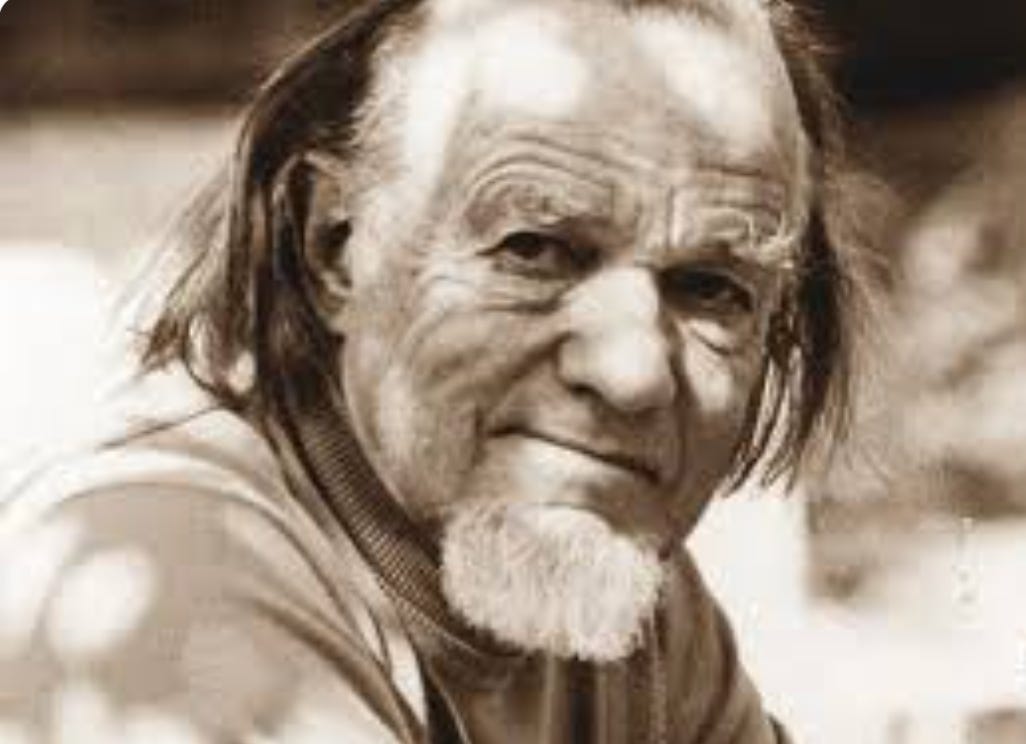Author remembers father, an antiabortion theologian
Francis Schaeffer has been credited with the intellectual underpinnings of Operation Rescue
Within antiabortion circles, the philosophy of Francis Schaeffer has long been cited as the basis for radical efforts to curtail access to reproductive care. The man was far more complex than that, though, as his son took some time to explain his father’s multi-faceted legacy to me.
Schaeffer and his wife ran L’Abri, a Christian community in Switzerland. The evangelical Christian community greatly respected Schaeffer, and he had even drawn left-leaning musicians and thinkers, including Timothy Leary and Jimmy Page, to his retreat. Eric Clapton praised his study retreat while not commenting on his later antiabortion work. However, he is perhaps better known because of his association with releasing two documentaries, How Should We Then Live? and Whatever Happened to the Human Race?
Both of those films, in part or in most of their entirety, decried the Roe v. Wade decision as emblematic of the decline of Western civilization. The subsequent promotional tour galvanized the antiabortion movement around the issue of abortion.
Frank Schaeffer, his son, wrote a book, Crazy for God: How I Grew Up as One of the Elect, Helped Found the Religious, that detailed much of what happened to him.
“In a way, the last six or seven years of his life's work colored the rest of what he did in a way that actually presents a false picture,” Frank Schaeffer said. ”Because before he got into those issues, if you had to say, ‘Is he a man of the left or the right?’ I think there'd be just as many people because of his interest in art and culture, we would say he was a man of the left.”
Evangelicalism had always had its splits. There was a fundamentalist right, but then there were preachers like Billy Graham who moved away from them to attract more liberal people to their congregations and awakenings. Liberal evangelicals felt that religious leaders should work for world peace, social justice, and ecumenism, according to Frances Fitzgerald’s The Evangelicals: The Struggle to Shape America.
Schaeffer had a huge evangelical influence that extended beyond the political right. He lectured at colleges and religious conventions and published over 30 books that sold millions. Christianity Today called him the most important evangelical intellectual during the two decades before his death. He read Kierkegaard and admired the work of Salvador Dali. He criticized secular thinking for eroding Western culture. According to Fitzgerald's book, Schaeffer could also quote the lyrics of Jimi Hendrix and Led Zeppelin.
Several years after abortion was legalized, his son Frank persuaded him to take a stronger stance against it. The pair filmed a documentary series, How Should We Then Live?, in which the final two episodes focused on abortion. The thrust of the whole work was that secular humanism had supposedly destroyed the Christian foundation on which Western civilization had been built. Abortion was the prime example of that erosion.
Francis Schaeffer hadn’t wanted to focus on abortion. He acquiesced to his son’s demand. Following its release, Schaeffer toured the U.S. to promote the film and its related book. They showcased it in Madison Square Garden.
Schaeffer followed that documentary series with another called Whatever Happened to the Human Race?
Pediatric surgeon C. Everett Koop and Frank Schaeffer developed the series together. Koop had been a leading pediatric surgeon and surgeon-in-chief of the Philadelphia Children’s Hospital. Koop was ardently antiabortion and a member of the same conservative Presbyterian sect as the Schaeffers, (the Presbyterian Church in America). The series focused on infanticide, abortion, and euthanasia. They didn’t use images of dead fetuses. Instead, they used allegories and metaphors that incorporated plastic dolls and actors.
The films galvanized the evangelical community around abortion. The Schaeffers traveled the country and spoke to increasingly larger audiences, whom they told must actively resist the secularization of Western culture. They helped create the crisis pregnancy centers, where evangelicals pretended to be abortion providers to dissuade women who mistook them for actual abortion doctors. Crisis pregnancy centers still disseminate misinformation and often traumatize and shame women.
Republican operatives, including Paul Weyrich, saw an opportunity in the religious revival and growing antiabortion movement. They heavily courted Schaeffer to support Republican leadership, which he eventually did. That helped lead to the Christian Right’s revolution in the 1980s, leading to landslide elections for Ronald Reagan.
Schaeffer picketed clinics toward the end of his life. He cautioned against violence but simultaneously wrote that revolution must be considered to stop it if the instruments of government wouldn’t. That was seen in his book Christian Manifesto.
“That's right there in black and white in the book, where he essentially says, America's in the same spot that Nazi Germany was in the 1930s,” Frank Schaeffer said. “And if we don't change this, then we should consider the same alternative than any Christian would have just considered in terms of overthrowing Hitler.”
Many within the antiabortion movement, including Randall Terry, credited Schaeffer for providing the theological justification for their actions.
Frank Schaeffer thinks it was a slippery slope that he regretted putting the country on. He said it is what laid the groundwork for abortion violence for decades after, as well as the mentality that led to the Jan. 6 insurrection of Congress.
“This happened on our watch,” he said. “We did this. There's not just regret. There's a kind of a mea culpa, an admission of guilt there for responsibility for things that, whether at the time we saw them coming or not, we were certainly radicalizing people and are responsible for what happened.”




